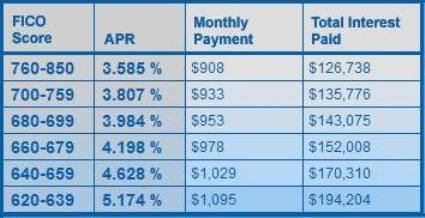 Some people downplay the importance of good credit, but whether you realize it or not, your credit matters. Your credit score and the information on your credit report matters a great deal. It has a tremendous impact on your financial life. You may already know that banks pull your credit report when applying for loans or credit cards, but you may not realize that other institutions pull your credit as well.
Some people downplay the importance of good credit, but whether you realize it or not, your credit matters. Your credit score and the information on your credit report matters a great deal. It has a tremendous impact on your financial life. You may already know that banks pull your credit report when applying for loans or credit cards, but you may not realize that other institutions pull your credit as well.
As consumers, each of us is entitled to one free credit report from the bureaus each year. You don’t have to pay for these reports, nor do these requests affect your credit score. This is one of the best ways to keep an eye on your credit history and catch fraud early. Get Your Credit Scores & Reports From All 3 Credit Bureaus.
On the other hand, when an institution pulls your credit report, it can create a credit inquiry, which can lower your credit score by 2 to 5 points. Your credit report keeps a record of every credit application you’ve submitted over the past two years.
There are different types of credit report pulls. A soft pull is used by many financial institutions to prescreen applicants, and these don’t hurt your credit. A hard pull is an official credit check to determine if you’re eligible for financing, and these can hurt your credit. Get your credit and finances on track with Lex OnTrack
5 Times When Your Credit Matters The Most
Before you can keep tabs on who’s checking your credit, you need to understand situations that may justify a credit check.
1. Opening a bank account
If you’re opening a checking or savings account with a bank or credit union, the financial institution may check your credit. They’ll also run your name through ChexSystem to see if you’ve had problems with banks in the past, such as overdrawn accounts you didn’t settle. These checks have nothing to do with your credit. However, if you’re opening a checking account and requesting overdraft protection, this often results in a hard pull.
Overdraft protection is a credit line received through the bank. If a transaction comes through your checking account and you don’t have enough cash to cover it, the bank will pay the charge using your credit line, and then you pay back the bank. This is an excellent tool to avoid overdraft fees, but you need good credit to qualify.
2. Test driving a car
Even if your only test driving a car, a car dealership may request a copy of your driver’s license and your Social Security number to conduct a soft pull on your credit. This is how they prescreen potential car buyers. The dealer is able to see your credit score, which he can use to estimate whether you qualify for a car.
This type of credit pull only gives the dealership a snapshot of your credit history. If you decide to proceed with the purchase, a finance department will conduct a hard pull and review your entire credit history to determine if you’re eligible for financing.
3. Applying for a loan
Whether you’re applying for a mortgage loan or an auto loan, lenders will check your credit before approving your application. There are several reasons why a bank needs your credit information in addition to your income. Since credit provides a snapshot of your credit history, lenders can gather all the data they need to determine whether you’re a likely candidate.
Your credit report highlights the length of your credit history, which is important when applying for certain types of loans. Some lenders are hesitant to give mortgages to people with a very short credit history.
Banks also look at your debts to assess how much you’re currently paying. With any type of loan, you need a manageable debt-to-income ratio. Even if you have a high credit score, too many monthly payments can create a hardship and increases the likelihood of default.
Lenders want to minimize this risk, so they’ll calculate your ratio before approving the loan. The contents of your credit report also help lenders determine your interest rate. If you have no debt, a good payment record and a high score, you’ll qualify for the most favorable rates.
4. Getting new insurance
Truthfully, auto insurance has nothing to do with credit. You don’t finance car insurance, and you can cancel your policy at any time — it’s a month-to-month contract. Still, auto insurance providers recognize a connection between good credit and timely payments.
For that matter, many insurance carriers check credit scores before determining premiums. If you have a history of timely payments, and no negative activity in your past, such as bankruptcy, foreclosure or a repossession, you can qualify for the lowest premiums.
5. Applying for a new job
The job market is tough, and unfortunately, you’ll have an especially tough time if you have a low credit score. Not all jobs check credit but depending on the nature of the assignment, the employer may look for someone who’s responsible with finances.
This might be the case if you’re applying to work as a lender, a banker, or if you’re seeking another position in finance. If you can’t manage your own money and credit, the company may feel you’re not the right person to manage its finances.
 If you borrow money for a new home or a new car, you understand the importance of your credit score. Having a good credit score can mean the difference between a great interest rate and one that is so high that it will cost you thousands of extra dollars in interest.
If you borrow money for a new home or a new car, you understand the importance of your credit score. Having a good credit score can mean the difference between a great interest rate and one that is so high that it will cost you thousands of extra dollars in interest.
But, what kind of interest rates can you expect based on the credit score that you have? If you have not checked your credit score in while, my financial planners and experts highly recommend that you check your credit score and credit report at least once a year. You can win the credit score game. It is possible!
Get Your Credit Scores & Reports From All 3 Credit Bureaus.
What Is A Good Credit Score?
Each lender that you apply to borrow money from has set criteria as to what makes a great credit score. Many lenders start raising your interest rates if your FICO score has dropped below 720. So, any score above 720 is typically considered good, but you may need as high as 760 to qualify for the best 30 year mortgage. FICO is a proprietary credit score developed by the Fair Isaac Corporation, and it is practically the only credit score that matters. Over 90% of all lenders rate potential borrowers based on their FICO credit score.
A FICO credit score range is from 300 to 850. One of the biggest problems with receiving your free annual credit report from the three credit bureaus is that it does not include your score. You have to pay for that as an extra charge (typically $20 at the most). I recently purchased myFICO score, and it was very interesting to see a breakdown of how different credit scores can lead to higher interest rates.

A Bad Credit Score Can Cost You Thousands
The difference between having a great credit score and just a decent one is also a difference of over 1.5% on a 30 year-fixed mortgage. It can also be a difference of 3.5% or more on a 48 month car loan. Heaven forbid if you have a poor score, you could be facing an interest rate of 17% or more on a car loan.
While one or two percentage points do not seem like a lot initially, they can add up to some serious money over time. For example, you could pay just over $126,000 on a $200,000 home with a 30 year mortgage at today’s rate of 3.585%. Or, you could pay $68,000 more in interest payments over the course of your loan if you had a credit score of 639 or less.
A poor score can also cost you almost $8,000 extra in interest on a new car loan if you have a poor credit score when compared to those with the best credit, 720 or higher.
While you may be quick to write off of one or two percentage points on your home mortgage or car loan because you have good credit and not great credit, it would be a mistake that could cost you thousands of dollars. Now is the time to continue focusing on improving your credit score before you need it to apply for a new loan.
From getting insurance to applying for a loan, you need to get serious about your credit. If you’ve made mistakes in the past and your credit needs improvement, maybe you don’t know where to start. Improving your credit habits is a good place, such as paying off debt and paying your bills on time. But sometimes, bad credit occurs due to errors on your credit report. Ignoring these issues only makes the problem worse.
Credit repair may seem overwhelming, but it’s easier than you might think. You can repair your credit score fast. And, you can also sign up for a variety of online services. If you have a mobile device, some companies offer a credit repair app and track your progress. These apps allow you to view your credit report file, review credit bureau actions in response to your dispute, and even track credit monitoring alerts.
This is your credit, and if you don’t protect it, nobody will. You’re not going to go from a 500 credit score to an 800 credit score overnight, but with better habits and the help you deserve, you can erase the past.


